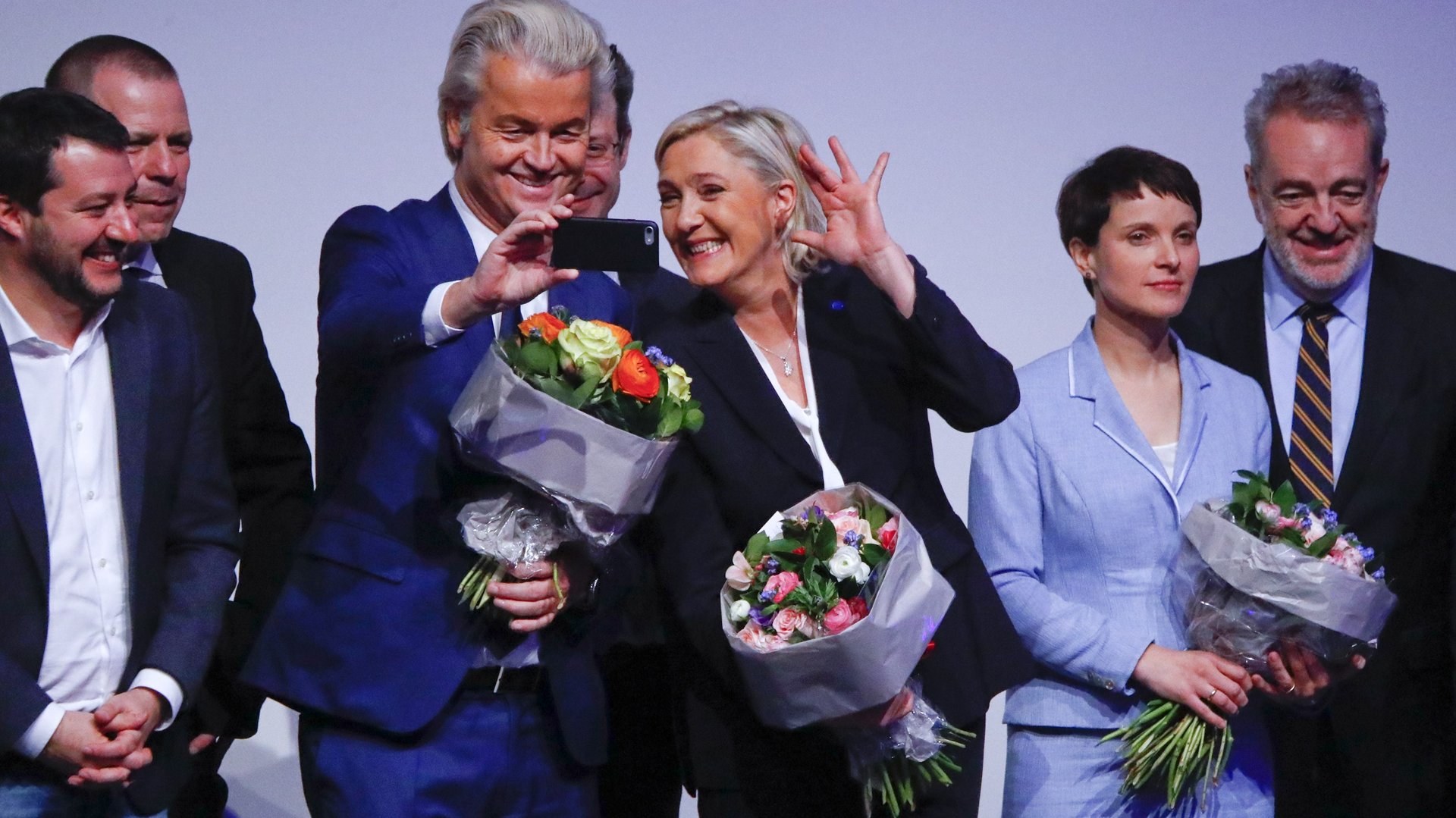Trump’s Syrian missile strike just gave Europe’s far right one more reason to disown him
This post was updated on April 7 at 5:30pm London time


This post was updated on April 7 at 5:30pm London time
The members of Europe’s far right were once Donald Trump’s biggest cheerleaders. But the US president’s eclectic European fan base is now turning against him.
On the campaign trail, Trump vowed to avoid messy conflicts in the Middle East. But he broke from that promise yesterday when he ordered a missile strike on a Syrian government airbase. The bombing was in response to chemical weapons attack that killed more than 70 people in Syria, which Washington blames on the country’s embattled president, Bashar al-Assad. It was the first US military action taken against Assad during the country’s six-year civil war.
Former leader of UKIP Nigel Farage, one of Trump’s biggest supporters in Western Europe, questioned the US president’s decision to launch the airstrikes, noting that many of his supporters would be disappointed. (The current leader of UKIP, Paul Nuttall, went one step further, tweeting he’d hoped for better from Trump.)
Trump was also criticized by France’s Marine Le Pen, who the day after Trump took office stood with the Dutch far right’s Geert Wilders and Europe’s most divisive politicians to hail Trump’s election as a victory for their own nationalist, anti-immigrant platforms. Le Pen told the cheering crowd at a ”European counter-summit” that 2016 was the year “the Anglo-Saxon world woke up. 2017, I am sure, the people of continental Europe will wake up.”
Today, Le Pen told France 2 television she was surprised by Trump’s actions in Syria: ”Trump had said repeatedly that he didn’t intend the United States to be the world’s policeman any longer and that is exactly what he did yesterday.”
It’s a break from her conspicuous silence recently about Trump.“Marine Le Pen has dropped references to Trump on the campaign trail,” says Richard Maher, research fellow at European University Institute who studies European integration. The far right presidential contender makes little mention of him during her campaign speeches, and there wasn’t a peep about the US president during either of France’s last two presidential TV debates.
Indeed, cheerleading for Trump has become taboo. In the wake of Wilders’s poor performance in the Dutch election, Trump’s victory is no longer a harbinger of looming populist upsets in Europe. Wilders, leader of the Dutch Freedom Party, declared 2017 to be “the year of the patriotic spring,” but his party came far behind in second place in the country’s election, ceding ground to the left.
The ”Trump effect” was partly to blame for Wilders’s loss. His supporters initially took a shine (link in Dutch) to Trump’s far right message, and support for his party peaked shortly after Trump’s election. But once Trump took office, Wilders’s support tanked.
In the month before the Dutch election, 60% of voters (paywall) who had supported Wilders before Trump took office, and then switched to support another party, said they now disagreed or strongly disagreed with Trump’s White House. Rem Korteweg, a senior research fellow at the think tank Centre for European Reform (CER) says once Trump became president, many Dutch thought, “if this is what it means to have a populist in power, maybe we shouldn’t want that.”
The same could happen in France. “Trump is really unpopular in France—even among Le Pen’s own supporters,” Maher says. A poll carried out two days after Trump was elected found that 75% of French people had a bad image (link in French) of the embattled US leader. Even 47% of FN supported admitted to disliking him. Maher says scandals and gridlock plaguing Trump’s government suggest that French voters who were “at least open to Trump initially” have been “turned off” by his dysfunctional administration.